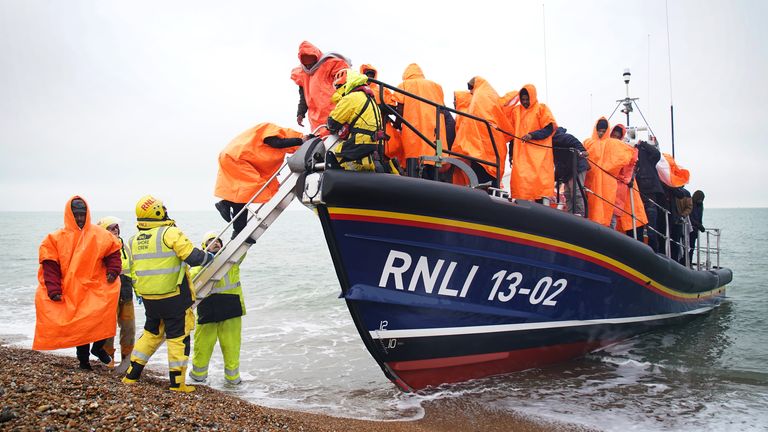At least 30 migrants have reportedly drowned after their boat broke up off the southern coast of Italy’s mainland.
Italy’s RAI state radio said the ship was carrying more than 100 migrants when it ran into trouble at dawn on Sunday, quoting unidentified port authorities near the coastal town of Crotone, in Calabria.
Vessels from the coast guard, border police and firefighters were involved in rescue efforts.
Vigili del Fuoco, Italy’s institutional agency for fire and rescue service, said a boat of migrants ran aground off Steccato di Cutro, in the province of Crotone, and reported around 40 survivors. It added that an intervention was in progress.
ANSA and other Italian news agencies said around 30 bodies were found washed up on the shores at the seaside resort, while three other bodies were found in the water.
The boat, bringing migrants from Iran, Pakistan and Afghanistan, crashed against rocks during rough sea weather,
Adnkronos news agency said.
Coast guard and other rescue services have not yet given any further details on the incident.
A record 45,728 made the crossing on small boats last year, up more than 60% on the previous year.
It comes as the UK’s asylum backlog has topped 160,000 for the first time since current records began, with a total of 160,919 asylum seekers currently waiting for an initial decision on their claim at the end of December.
Read more:
What is asked in the 20-day questionnaire asylum seekers must fill out under ‘fast-track’ plan?
Bodies of 18 migrants found in abandoned lorry on highway in Bulgaria
Home Office figures published on Thursday show this was up 60% from 100,564 for the same period in 2021 and the highest figure since current records began in 2010.
In December the prime minister pledged to reduce the asylum backlog by the end of 2023 as he vowed to “stop the boats” crossing the Channel.
It means the Home Office has about 10 months to clear 92,601 initial asylum claims which were in the system as of the end of June 2022.
The Migration Observatory at the University of Oxford described the scale of the challenge as a “major headache” for the government.









![Stonebwoy holds star-studded party for ‘5th Dimension’ mega album [Video]](https://ghananewss.com/storage/2023/04/stonebwoy-partyy-100x75.jpeg)







